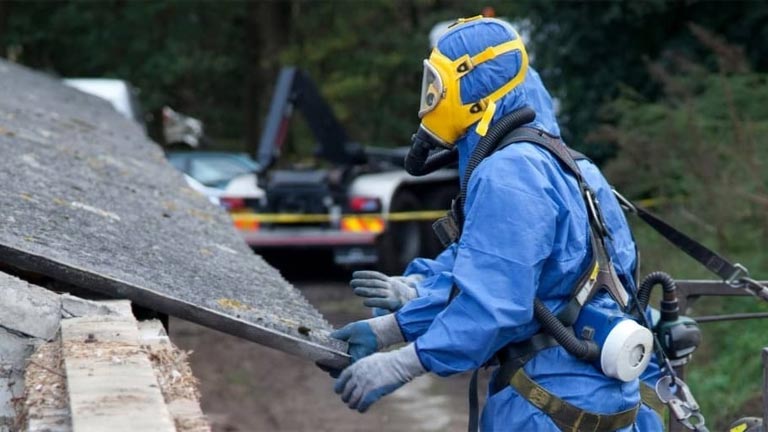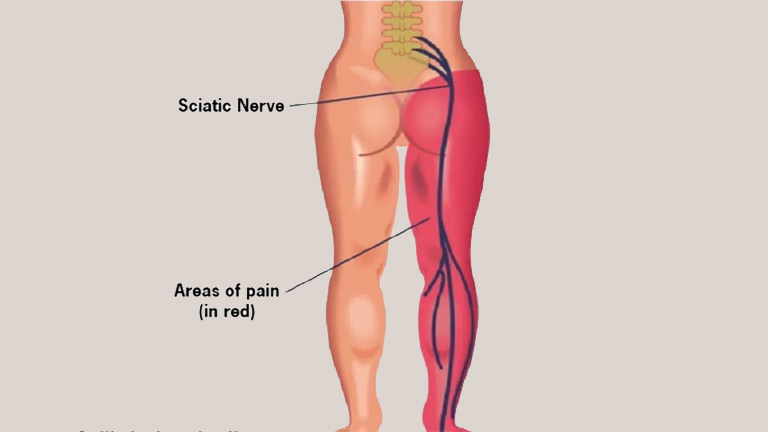
Asbestos exposure, once common in various industries, poses significant health risks, including serious lung conditions and cancers. Understanding how to detect and address these health complications is essential for individuals who have been exposed to asbestos.
This guide aims to provide insights into identifying potential health issues related to asbestos exposure, navigating medical assessments, and managing diagnosed conditions effectively.
1. Recognizing Early Symptoms of Asbestos Exposure
Besides the primary symptoms, other early indicators of asbestos-related diseases can include weight loss, difficulty swallowing, or swelling of the face or neck. It’s important for individuals with asbestos exposure to be aware of these subtle signs and to maintain open communication with their healthcare provider about their exposure history and any health changes, no matter how minor they may seem. Annual health check-ups and discussions about any potential asbestos exposure, even if it occurred decades ago, can be key in early detection and timely intervention.
2. Regular Health Screenings and Medical Evaluations
These screenings are essential not just for early detection but also for ongoing monitoring of one’s health status. For workers in industries with high asbestos exposure risks, workplace health monitoring programs can be crucial. These evaluations should be comprehensive, looking at both respiratory health and overall well-being, as asbestos exposure can impact more than just the lungs. It’s also wise to keep a personal health record that includes details of your asbestos exposure and any related symptoms.
3. Legal Advice and Compensation Claims
Understanding the legal process for getting compensation due to asbestos exposure can be complex and usually needs the help of specialized lawyers. Law firms like Simmons firm specialize in asbestos litigation and can provide the necessary guidance for patients and families dealing with an asbestos-related diagnosis. These firms have a deep understanding of asbestos laws and the historical context of asbestos use in various industries. They can assist in gathering necessary documentation, filing claims, and representing patients in court if needed.
Seeking advice from such specialized legal resources can be a crucial step in securing fair compensation, which can help manage treatment costs and provide financial support for patients and their families. It’s important for individuals exploring legal options to research and choose a firm with a strong track record in asbestos-related cases to ensure they receive comprehensive legal representation.
4. Understanding and Managing Asbestosis
Living with asbestosis requires a multi-faceted approach to care. Regular physical activity, as advised by a healthcare provider, can help maintain lung function. Environmental controls to avoid further irritants to the lungs are also important. Patients should be aware of the increased risk of lung infections and take preventative measures, including regular vaccinations and prompt treatment of respiratory infections. Continuous monitoring and adapting treatment plans as the condition progresses are key to managing asbestosis effectively.
5. Treatment Options for Mesothelioma and Lung Cancer
For mesothelioma and lung cancer patients, participating in a treatment plan that’s tailored to their specific needs can make a significant difference in outcomes. This may involve working with a team of oncologists, surgeons, and radiologists. Palliative care, focusing on symptom management and improving quality of life, should be integrated into the treatment plan from the outset. Patients and families should also be educated about the potential side effects of treatments and how to manage them effectively.
6. Coping with the Emotional Impact
The emotional toll of an asbestos-related diagnosis can be profound. Seeking out mental health support early in the diagnosis can provide tools for coping with this stress. Activities that promote relaxation and stress reduction, such as meditation, gentle exercise, or engaging in hobbies, can also be beneficial. It’s important for patients to not only seek support but also to communicate openly with loved ones about their feelings and needs, fostering a supportive environment for emotional healing.
7. Seeking Specialized Medical Care
In addition to regular consultations, staying informed about the latest developments in the treatment of asbestos-related diseases is important. Specialists can provide access to the latest research and treatment options, including participation in clinical trials for new therapies. They can also offer advice on lifestyle changes and interventions that can help manage symptoms and improve quality of life. Building a relationship with a healthcare team that understands the complexities of asbestos-related conditions is an invaluable part of managing your health.
8. Lifestyle Changes and Supportive Care
Adopting a healthy lifestyle can positively impact the progression and symptoms of asbestos-related conditions. This includes eating a balanced diet, staying hydrated, and avoiding environmental pollutants. Supportive care also extends to mental and emotional health, with practices like mindfulness and connecting with nature being beneficial for overall well-being. Engaging with a supportive community, whether through local support groups or online forums, can provide both practical and emotional support.
9. Monitoring for Secondary Complications
Individuals with asbestos-related diseases should be aware of the signs of secondary complications, such as heart palpitations, unusual fatigue, or changes in blood pressure, and report these to their healthcare provider. Regular cardiac evaluations and other relevant screenings can be part of a comprehensive health monitoring plan. This proactive approach to health monitoring can help in the early detection and management of potential complications, improving the overall prognosis.
10. Raising Awareness and Prevention
Advocacy and awareness-raising are crucial in preventing future asbestos exposure and supporting those already affected. Sharing personal experiences can help bring attention to the risks of asbestos and the need for stricter regulations and safer work practices. Supporting or participating in campaigns for asbestos awareness and the ban of its use can contribute to public health improvements and worker safety. Education and advocacy play vital roles in changing policies and perceptions regarding asbestos and its impact on health.
Conclusion
Effectively managing the health complications arising from asbestos exposure requires a proactive and informed approach. From early detection of symptoms to specialized medical treatments and legal recourse, each aspect plays a crucial role in addressing the challenges of asbestos-related conditions. Understanding the importance of regular health monitoring, accessing specialized care, and seeking emotional and legal support are key steps in navigating this journey.




